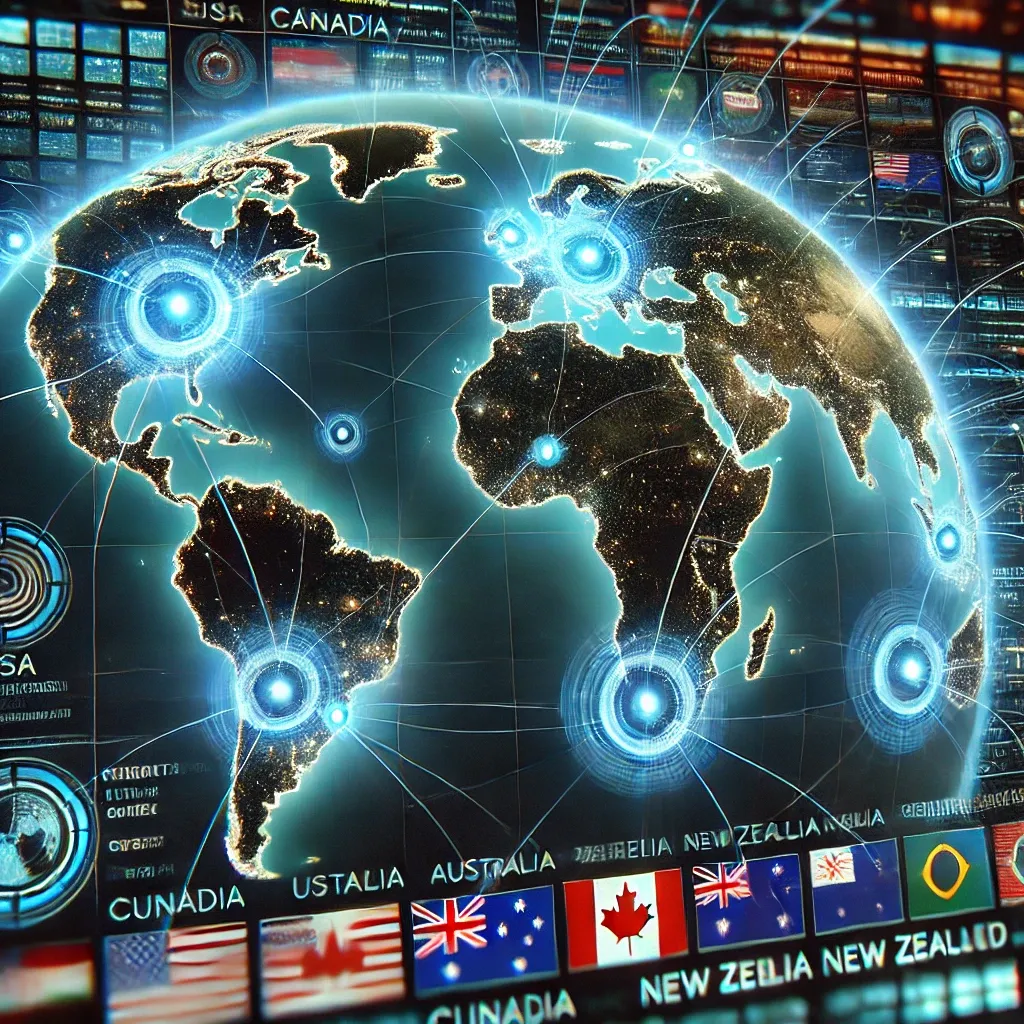
Vancouver, BC - March 1, 2025 - The Fourteen Eyes alliance is a powerful international intelligence-sharing network that plays a crucial role in global security. Officially known as SIGINT Seniors Europe (SSEUR), this coalition extends from the Five Eyes (USA, UK, Canada, Australia, New Zealand) to the Nine Eyes (adding Denmark, France, the Netherlands, and Norway), with additional members Belgium, Germany, Italy, Spain, and Sweden.
A Brief History of the Alliance
The origins of this network date back to the UKUSA Agreement, signed in the aftermath of World War II, when the United States and the United Kingdom joined forces to share signals intelligence (SIGINT). Over time, additional nations were integrated into the network, expanding its reach and capabilities. Today, Fourteen Eyes serves as a vital surveillance and cybersecurity collaboration, monitoring threats like terrorism, cyberattacks, and international espionage.
However, the alliance is not without controversy. Critics argue that its intelligence-sharing agreements could infringe on personal privacy and national sovereignty, as member nations work together to gather and share electronic data, sometimes bypassing their own privacy laws.
Political Shifts Impacting the Alliance
As of March 1, 2025, recent elections in key member states are raising questions about the future direction of Fourteen Eyes:
- United States: Donald Trump’s 2024 election victory and his advisors’ push for a tougher stance on allies have sparked rumors of Canada being expelled from Five Eyes over security and trade disputes. This could weaken intelligence coordination, especially in Arctic surveillance.
- Germany: A 2025 snap election brought Friedrich Merz’s Christian Democrats to power, signaling a potential push for deeper NATO and Five Eyes ties, possibly even an attempt to upgrade Germany’s intelligence role.
- France: Emmanuel Macron’s re-election in 2022 reinforced France’s desire for strategic autonomy, often clashing with Anglo-centric Five Eyes policies, yet France remains committed to the Nine Eyes framework.
- Canada: With Justin Trudeau facing strong opposition from Pierre Poilievre’s Conservatives in the 2025 election, Canada’s intelligence-sharing priorities may shift if domestic concerns take precedence.
Companies Involved in National Security
Numerous companies globally contribute to national security efforts:
- Technology Firms: Major tech companies often collaborate with governments, providing data or developing surveillance technologies.
- Defense Contractors: Firms like The Geo Group expand surveillance operations in response to government policies, reflecting the private sector's role in national security.
- Consulting Firms: Companies such as Booz Allen Hamilton provide technology and consulting services to governments, with a significant portion of their revenue coming from such contracts.
The exact number of companies involved in national security is vast and includes various sectors, from technology to defense contracting, reflecting the extensive collaboration between private enterprises and governments in ensuring national security.
What’s Next for Fourteen Eyes?
If political rifts continue, smaller members like Sweden or Belgium may grow more reliant on intelligence from larger partners, while France and Germany could push for a more independent European intelligence strategy. The alliance’s future hinges on balancing cooperation and sovereignty, ensuring that intelligence-sharing strengthens, rather than strains, global partnerships.
#Fourteen Eyes #Global Surveillance #SIGINT #Intelligence Sharing #Cybersecurity #Five Eyes #Geopolitics #National Security #German Canadian Business News #EU News #Global Updates #Elke Porter

Connect with Elke at Westcoast German Media or on LinkedIn: Elke Porter or contact her on WhatsApp: +1 604 828 8788
